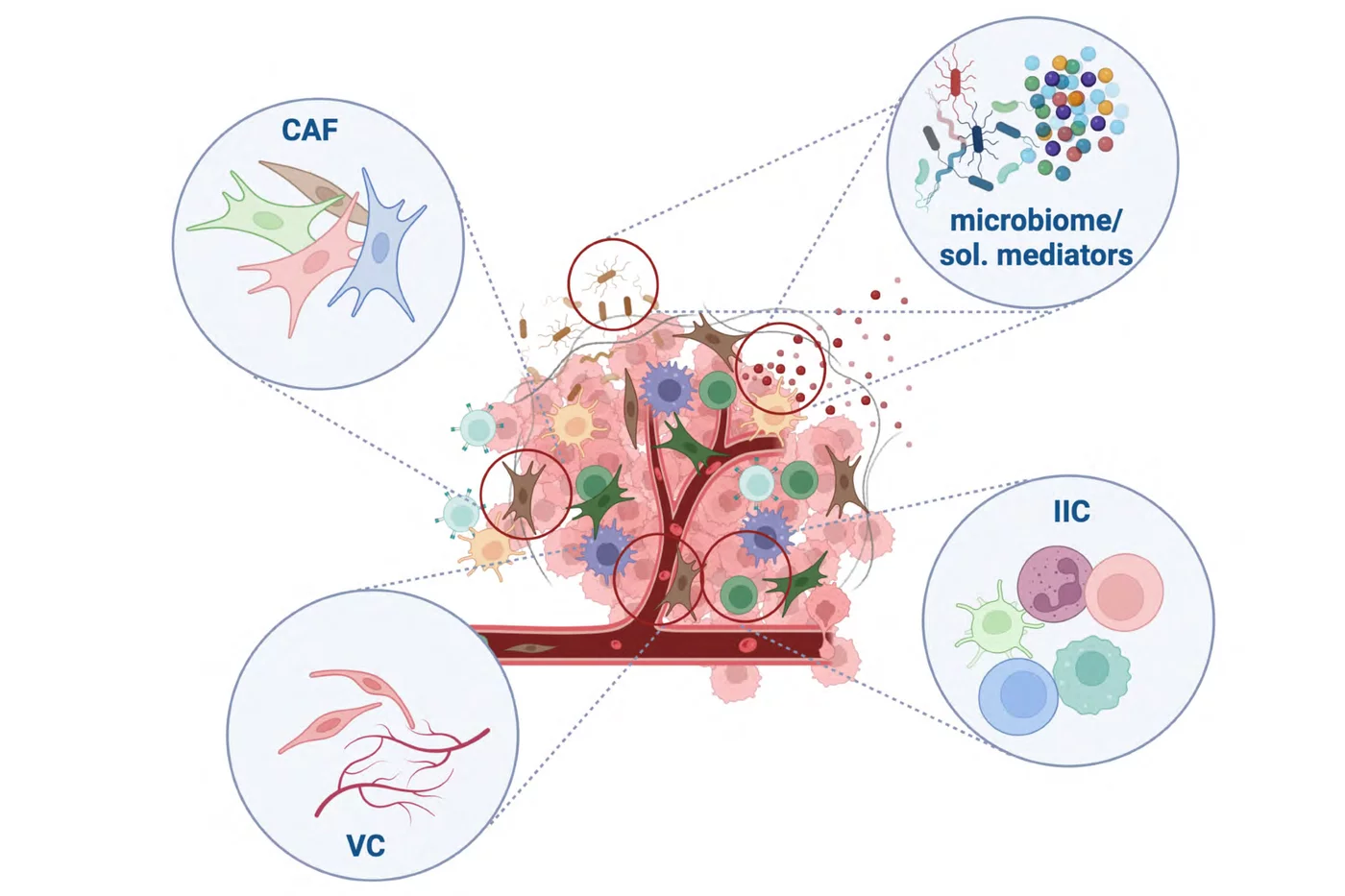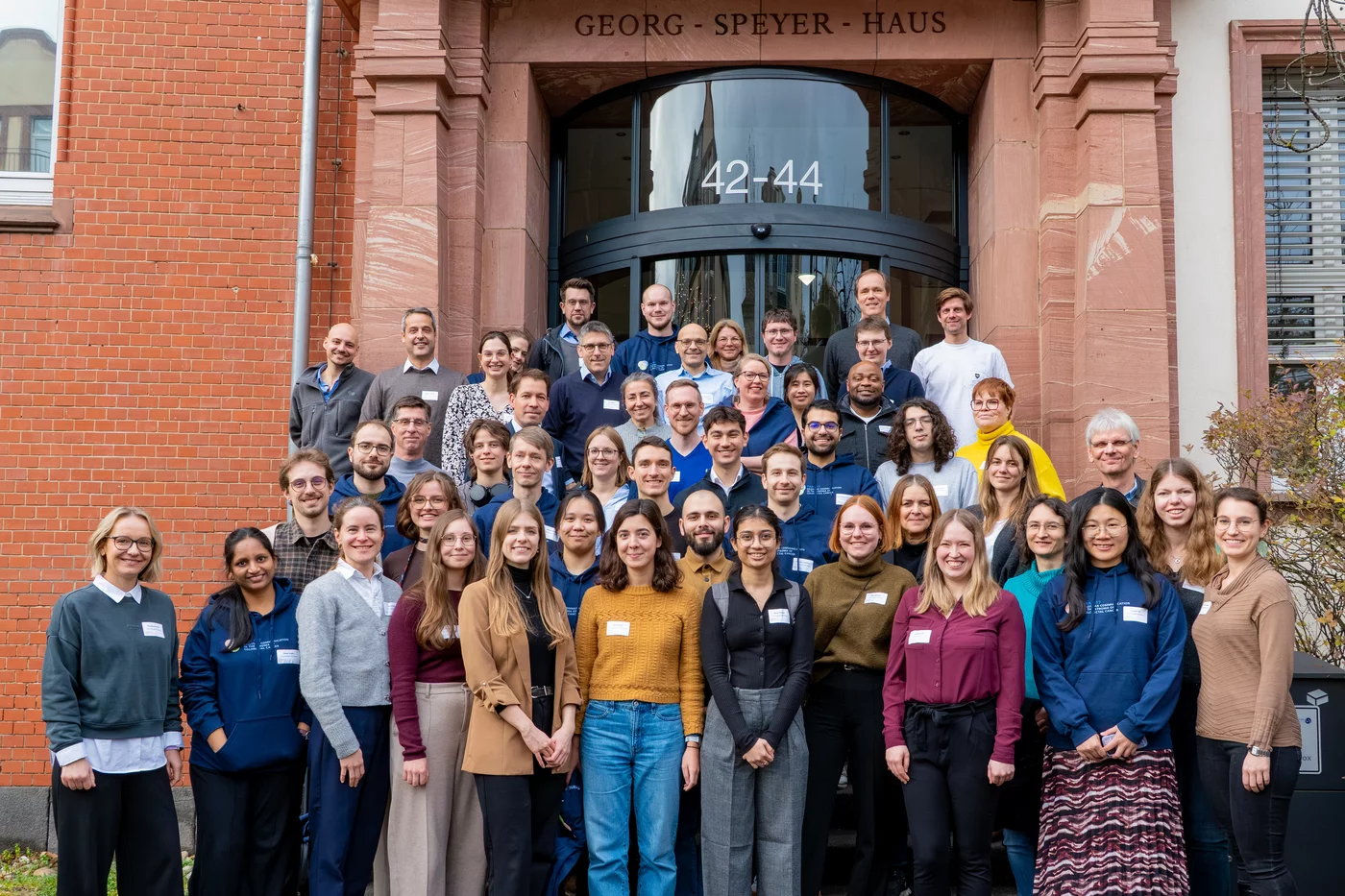Targeting the Tumor Microenvironment in Colorectal Cancer
Colorectal cancer (CRC) development is shaped not only by genetic mutations in intestinal stem cells but also by the complex interplay between mutated epithelial cells and the tumor microenvironment (TME). This bidirectional communication influences every stage of tumor progression and impacts how patients respond to treatment.
Despite this, most current therapies focus solely on eliminating mutated tumor cells, neglecting the crucial role of the TME. As a result, survival rates remain unacceptably low, with a five-year survival rate of just 64%. There is an urgent need for combinatorial and multi-modal treatment strategies that target both the tumor and its microenvironment.
Our Vision – The TRR Initiative

To meet this challenge, we have established an interdisciplinary Collaborative Research Center/Transregio (TRR) dedicated to understanding the TME’s role in CRC biology and therapy response.
Our goals are to:
- Uncover the cellular and molecular mechanisms within the TME
- Translate this knowledge into novel therapeutic strategies
- Make immunotherapy viable for microsatellite-stable CRC
- Train the next generation of clinician-scientists in CRC research
Expertise and Collaboration - Building on Strong Foundations
This network combines expertise in basic science, translational research, and clinical application, creating a unique national hub for CRC research. The TRR builds on the success of the Research Unit RU 2438, which established advanced preclinical models and harmonized technologies across the three applicant universities.
Impact
By targeting the tumor microenvironment, we aim to develop innovative, more effective treatments that will improve outcomes for CRC patients facing poor prognoses — setting new standards for research
